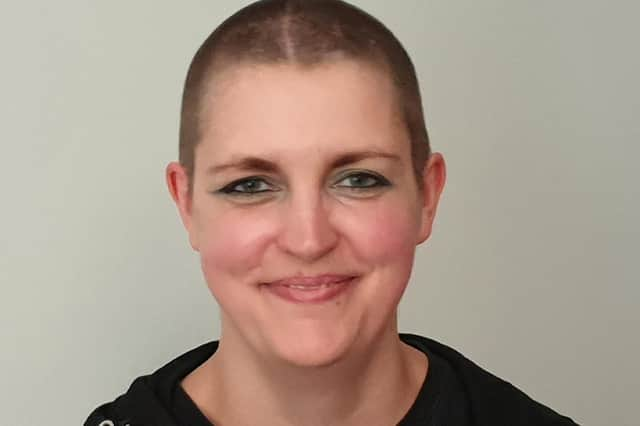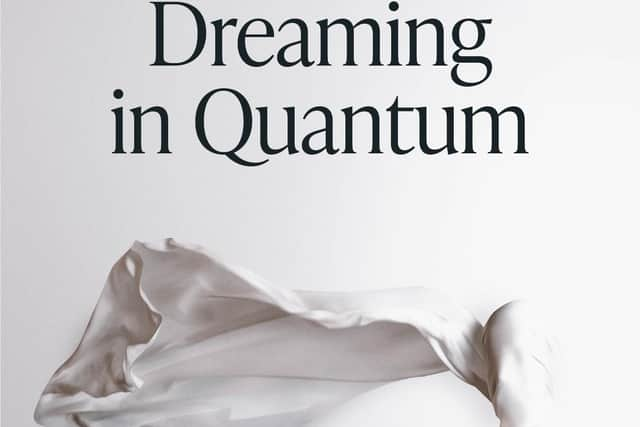Book reviews: Dreaming in Quantum and Other Stories by Lynda Clark | Man Hating Psycho by Iphgenia Baal


One of the joys of the short story is being able to read it and then immediately re-read it. Sometimes I do this just to experience the experience of the story again, and sometimes to chew an imaginary pencil and ask “How did you do that?” Both these collections are ones where I was leafing back continuously. Lynda Clark’s work is wry and cerebral; Iphgenia Baal’s is angry and visceral. The short story can be more than one thing. Both, in different ways, are “concept albums”, where the same concerns, even the same images, reiterate. They feel curated rather than merely collected, and that is commendable.
Lynda Clark’s title is well chosen, given it combines two sorts of ambiguity. There is the oneiric realm of dreams alongside the scientific but weird realm of quantum science. The stories reflect this. In the eponymous work, the eventual proposition is that dreams are a way to access the parallel universes of Everett’s multiverse theory. “Ghillie’s Mum” is a gem of a piece with the wonderful opening sentence “When he was a baby, Ghillie’s Mum was mostly an orangutan.” It’s almost a call-back to the Roman poet Ovid’s Metamorphosis with its shape shifting way of exploring what being human is. Many of the stories here are what I would call “conceit” stories, in that there is more than a hint of Borges in their puzzling and speculative nature. So we have a man whose wife is becoming transparent, an attempt to clone whisky, and another clone in “Blanks” learning to be their “Original.” (There is also a strange recurrence of dogs).
Advertisement
Hide AdBut a better comparison than Borges would be contemporary writers such as China Miéville, Robert Shearman and Andrew Crumey, who manage the trick of investing emotion into the off-beam and the awry. There is a persistence of death in these stories, most horribly in “Dead Men Don’t Count”, which is almost-zombie horror, but twists away from what you think. The prose is elegantly invisible, as it does not need to draw attention to itself and take the reader away from the ideas, although there is the use of the second person – the “you” that is both intimate and complicit and distant – which is almost a signature. It is a remarkable book by a very interesting writer. One story has the line “the maze itself is skeletal” (and yes, there is a minotaur in the story) but that seems to encapsulate how she puts down hard lines and then slyly erases those boundaries. This is a mind-warping collection, and yet one where the heart-strings are discretely twitched.


Iphgenia Baal is a writer whose work has long intrigued me since I read The Hardy Tree, her book about Thomas Hardy, graveyards and how London shifts and evades. This new collection of her fiction, I hope, will make her better known in what passes as “the literary establishment.” If the book has one signature line, it comes in “Married to the Streets” where the protagonist says, wearily, “But who said London was supposed to be friendly?” It works because there is a queasy romanticism in a litany of names just beforehand. “London Eye, Gherkin, Crossrail, Shard, Westfield, Westfield, Walkie Talkie, Olympic Village, Cheese Grater, Razor, New Spitalfields Market, Taylor Wimpey, British Land, Foxtons… Sure I was having a terrible time”. The men in a book provocatively called Man Hating Psycho are not the kind of monsters we might recognise from, say, Bret Easton Ellis’s America Psycho. It is their uselessness rather than their perfidy that comes across most strongly. But Baal certainly does not give a free pass to the women. In “Pro Life” she writes “Despite a fair number of us being teenage girls, we were decidedly ill-versed in teenage girl behaviour.”
In contrast to Clark, Baal is more experimental in terms of form. It seems important that whereas her collection begins with a kind of homage to the Brothers Grimm, Baal opens with a story – entitled “Change :)” – which is constructed around mobile phone groups. Other stories include medieval (or fake medieval) English, a story entitled “Line” where the musings on lines (life-line, bee-line, main-line and many more) are typographically skewed on the page. Moreover she has a penchant for characters only being identified by an initial and a dash. There is a little wink at Iain Sinclair – one character’s new squeeze leaves her waiting to have coffee with the great psychogeographer – but there is a real sense of Sinclair’s influence. As she writes, “it was as if all the bullsh*t everyone’d had to put up with for the last three decades was laid bare and what was exposed was the old London, unchanged, untouched, unrivalled, brimful of crims, a poltergeist at every corner.” There is also one character who definitely, definitely is not Boris Johnson, despite the conclusions to which you might leap.
Although stylistically different, both these books explore major issues, from toxic gentrification to the unforeseen consequences of technology, how to belittle and how to empower. As such they both prove that short form fiction still has relevance, and more importantly, beauty.
Dreaming in Quantum and Other Stories, by Lynda Clark, Fairlight Books, £8.99


Man Hating Psycho by Iphgenia Baal, Influx Press, £9.99
A message from the Editor:
Thank you for reading this article. We're more reliant on your support than ever as the shift in consumer habits brought about by coronavirus impacts our advertisers.
If you haven't already, please consider supporting our trusted, fact-checked journalism by taking out a digital subscription at https://www.scotsman.com/subscriptions